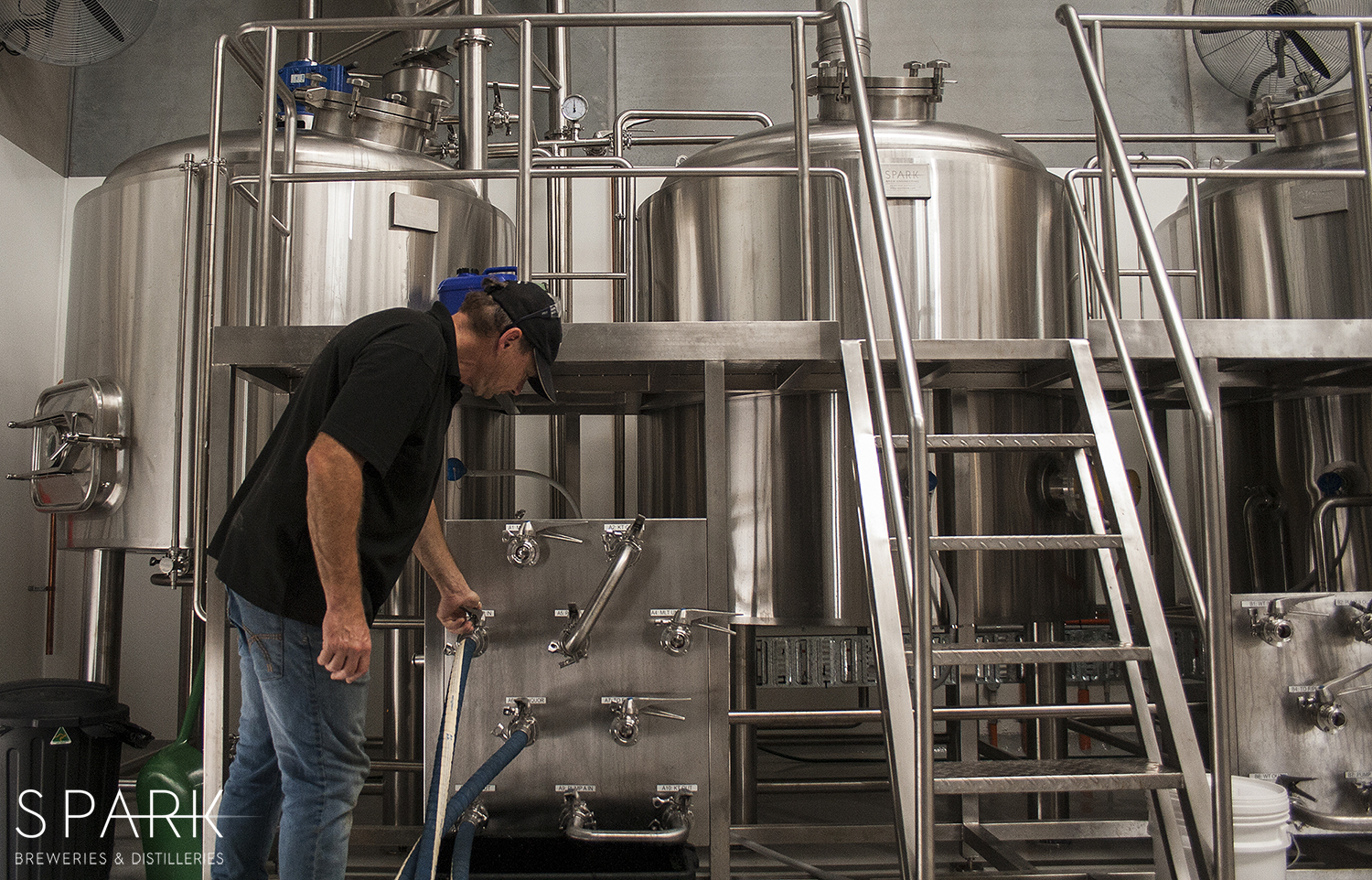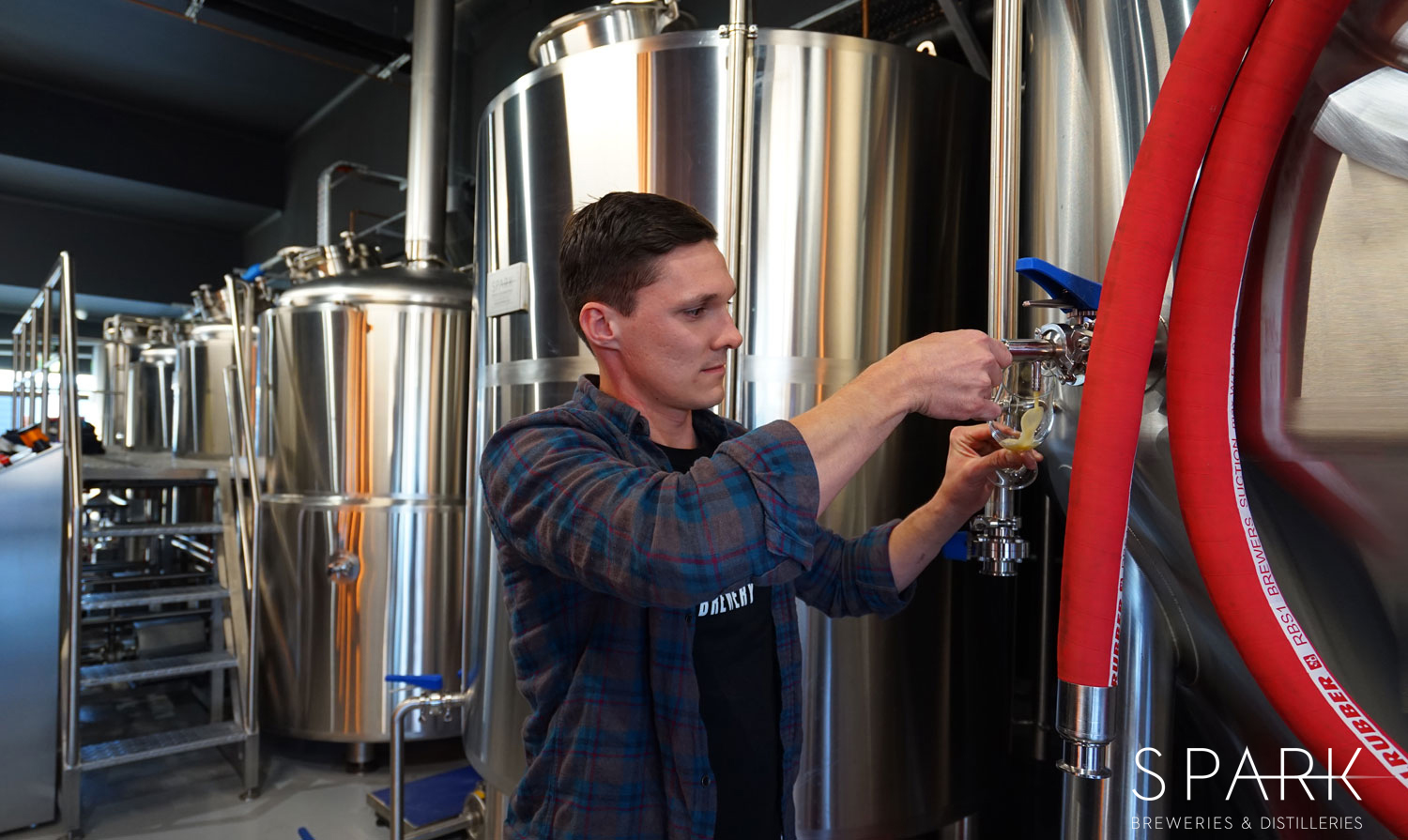
How to start a brewing company: Part Three

Operating the brewhouse manifold at White Brick Brewing
In the final article of a three part series, Spark Breweries and Distilleries founder Julian Sanders details the critical success factors in professional brewing. Read Part Two here.
Although it has been said that the crucial top three success factors in the brewing industry are selling beer, selling beer and selling beer, there are some additional things that could also be considered.
Planning
As the heart of a comprehensive business plan, get an accurate understanding of the costs of production for your chosen business model. Staff, power, equipment finance costs (approximately $7,000 per month for a complete 10hL brewing system) and rent can be added to a basic $75 per keg for ingredients and excise with small brewer’s rebate. You could budget on a wholesale price of $275 per keg and retail (served on tap) of $1,000. Note the break even sales volume that will take you into profit and ensure that your business plan directly supports you achieving that as soon as possible.
Branding
As the embodiment of what you and your work stand for, clear, bold and consistent branding is important for standing out in an increasingly crowded marketplace.

Matt Jancauskas of Brouhaha Brewery pouring direct from tank
Tap sales
You’ll need to achieve five times the volume in distribution to make the same profit that you will via your own taps, so including a strong taproom in your plans gives you full margin revenue as well as a location to anchor your brand and organise consumer engagement events.
Equipment reliability
Real world success relies on your equipment being selected and installed in a way that ensures it will operate reliably and can be maintained and repaired. The lowest cost option on day one is unlikely to actually end up being the lowest cost option after a year of brewing. No-one with many years of experience in professional brewing, after multiple plant expansion projects, chooses cheap equipment. That is for very good reason.

This article has been prepared and sponsored by Spark Breweries and Distilleries
Beer quality
Aprofessional Quality Management-based approach to production is pivotal for the health of the industry as a whole, to justify consumers’ payment for and respect of our beer. Much has been written on this and many training courses are available. A simple system need not require a prohibitively high laboratory equipment cost.
As our brewing industry re-fragments after a century of consolidation, there are many opportunities, with the right information and planning, to start and grow profitable brewing businesses that will be cultural assets for their region for generations.
Spark Breweries and Distilleries is a Melbourne based engineering practice that works across the country.
We’d love to hear your plans and help you achieve them.For a free business planning pack, please get in contact viajulian@sparkbrew.com
Read more:
How to start a brewing company: Part One
How to start a brewing company: Part Two



